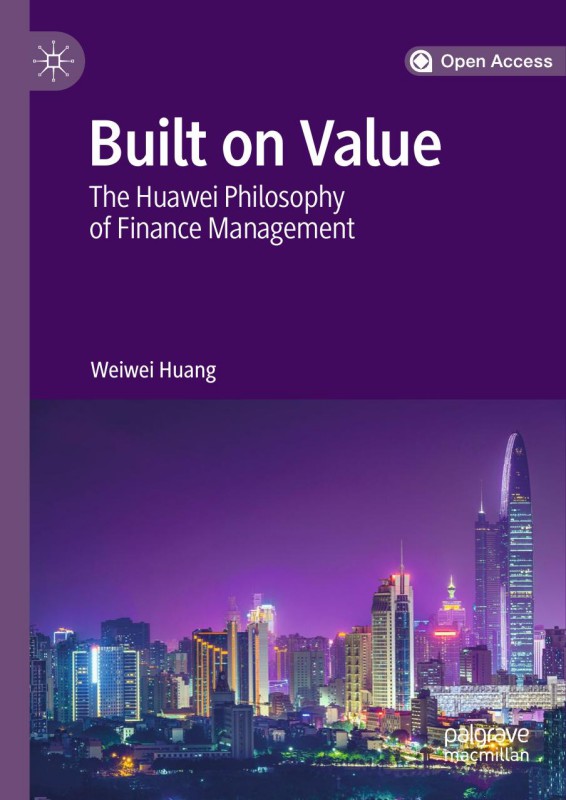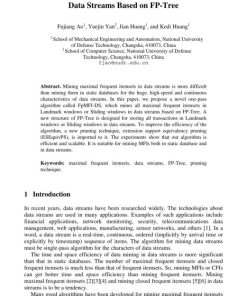Built on Value The Huawei Philosophy of Finance Management 1st edition by Weiwei Huang ISBN 9811375062 978-9811375064
$50.00 Original price was: $50.00.$25.00Current price is: $25.00.
Authors:Weiwei Huang , Series:Management [421] , Author sort:Huang, Weiwei , Languages:Languages:eng , Published:Published:Jun 2019 , Publisher:Palgrave Macmillan
Built on Value The Huawei Philosophy of Finance Management 1st edition by Weiwei Huang – Ebook PDF Instant Download/Delivery. 9811375062, 978-9811375064
Full download Built on Value The Huawei Philosophy of Finance Management 1st edition after payment

Product details:
ISBN 10: 9811375062
ISBN 13: 978-9811375064
Author: Weiwei Huang
This book is open access under a CC BY-NC-ND 4.0 license.
This book presents the concept of value as the central component to success and longevity of the global ICT industry player, Huawei. It provides examples of how Huawei focuses on customers to pursue sustainable and profitable growth rather than focusing on capital market valuation which is a familiar scenario among Western companies. It is the business departments that are the creators of value for Huawei, while the finance department is tasked to provide support and services to those business departments during the value creation process. The book illustrates how Huawei Finance sets rules, allocates resources, and builds centers of expertise all over the world to address future uncertainties. More than a decade ago Huawei dedicated seven years to implement the Integrated Financial Services (IFS) Transformation Program with the help of IBM consultants. This book also draws on the leading concepts and successful experience of the IFS Transformation Program. Huawei Finance adopts three types of centralized vertical management from the top down: treasury, accounting, and auditing. It does not transfer such central authority down to lower levels, but delegates all other authority to business organizations across all levels. This management model represents the focus of this book. Built on Value provides an overview of Huawei’s finance management and will help academic researchers in Business/Management, as well as practitioners in industry, an accurate and in-depth understanding of Huawei as a company.
Built on Value The Huawei Philosophy of Finance Management 1s Table of contents:
-
Introduction
- Overview of Huawei’s philosophy and approach to business
- The significance of financial management in Huawei’s success
- The role of finance in supporting strategic goals and value creation
- Structure and objectives of the book
-
Chapter 1: The Huawei Business Model
- Understanding Huawei’s unique business model
- Key principles of Huawei’s approach to global business
- Long-term focus and sustainable growth
- The role of technology and innovation in business strategy
-
Chapter 2: Financial Philosophy at Huawei
- The core financial values that drive Huawei’s decision-making
- Aligning finance with corporate strategy
- The role of finance in achieving competitive advantage
- Key financial principles that shape Huawei’s operations
-
Chapter 3: The Huawei Financial Structure
- An overview of Huawei’s financial management structure
- Decentralized decision-making and its impact on financial strategies
- The balance between autonomy and coordination across global operations
- Key financial systems and processes used at Huawei
-
Chapter 4: Financial Planning and Budgeting
- How Huawei approaches financial planning and forecasting
- Aligning budgets with long-term goals and business needs
- The process of setting financial targets and performance metrics
- Strategic resource allocation in a rapidly changing global environment
-
Chapter 5: Risk Management in Huawei
- Huawei’s approach to managing financial and operational risks
- Tools and strategies used to mitigate financial risks
- The importance of risk management in ensuring sustainable growth
- Case studies of Huawei’s risk management practices
-
Chapter 6: Investment Strategy and Capital Allocation
- How Huawei makes investment decisions and allocates capital
- The role of R&D and infrastructure investments in long-term value creation
- Balancing short-term returns with long-term strategic goals
- Evaluating the financial viability of new ventures and markets
-
Chapter 7: Cost Control and Efficiency
- Huawei’s methods for controlling costs and improving operational efficiency
- Strategic cost management to maintain profitability
- Optimizing supply chains and reducing operational waste
- Cost-effective approaches to scaling global operations
-
Chapter 8: Corporate Governance and Financial Integrity
- The role of corporate governance in ensuring financial transparency
- Huawei’s commitment to ethical financial practices and integrity
- The importance of internal controls and audits in maintaining financial health
- Governance structures that support financial decision-making
-
Chapter 9: Financing Growth and Global Expansion
- The strategies Huawei uses to finance its global expansion
- Managing debt and equity financing for international operations
- Raising capital in global financial markets
- Huawei’s approach to mergers, acquisitions, and partnerships
-
Chapter 10: Building Long-term Value
- Creating and sustaining value for shareholders, customers, and employees
- The Huawei approach to value-driven performance
- How finance contributes to the company’s competitive positioning
- Measuring and assessing long-term success
-
Chapter 11: Lessons from Huawei’s Financial Management
- Key takeaways from Huawei’s financial management philosophy
- How other businesses can apply these principles
- Adapting Huawei’s financial philosophy to different industries
- The role of financial management in global business leadership
-
Conclusion
- Summarizing Huawei’s financial philosophy and practices
- The future of finance in Huawei and its impact on global business
- Final thoughts on financial management as a driver of success
-
References
-
Index
People also search for Built on Value The Huawei Philosophy of Finance Management 1st:
huawei financial performance
huawei fintech
huawei business model
huawei philosophy
huawei smartphone business












